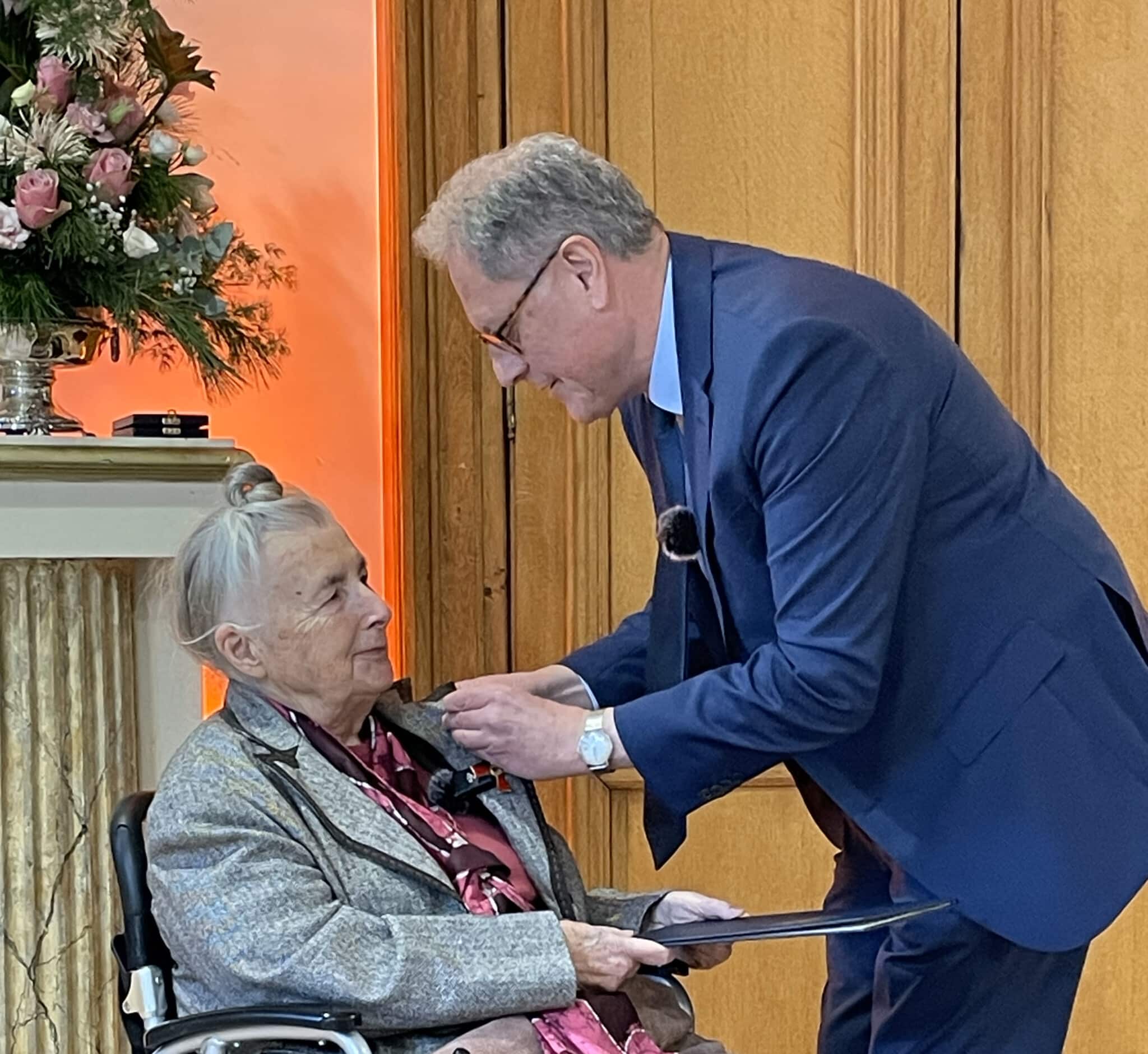Survival and Resistance: The Netherlands Under Nazi Occupation
Linda M. Woolf, Ph.D.
“(…) While most individuals are aware of the extreme persecution of the Jews during the Holocaust, far fewer are aware of the brutal persecution of Jehovah’s Witnesses by the Nazis. Approximately one month after Hitler claimed power in Germany, all religious literature printed by Jehovah’s Witnesses was banned from circulation. Hitler referred to the Witnesses as “so-called Earnest Bible Students” and as “troublemakers”. He confiscated their literature and their property and said that it was “for the protection of the people and the state.” Within six months, a number of Witnesses had been sentenced to terms in prisons and concentration camps being among the first individuals interred at Dachau.
Why did Hitler so vehemently despise Jehovah’s Witnesses? Such a question of course is multifaceted and has many answers. However, one factor was certainly clear. Hitler could not control the Witnesses nor gain their allegiance. The Witnesses refused to serve in Hitler’s army as they were already in the army of Jehovah. The Witnesses refused to salute Hitler as their allegiance was to God. As such, the Witnesses continued their teaching and publications in spite of increasing persecution and assault at the hands of the Nazis.
The work of Jehovah’s Witnesses can be viewed as a form of resistance – spiritual resistance. Despite proclamations and decrees, the Witnesses continued to engage in Bible study and prayer. They continued to reach out to individuals with their literature and preaching.
There are some parallels between Dutch and Witness resistance.
First, the Dutch refused to accept the mantle of Nazism – they fought to retain their identity as Dutch. Similarly, Jehovah’s Witnesses also refused Nazism. They courageously continued their work identifying themselves as servants of Jehovah. They refused to bow to Hitler or to accept the tenets of National Socialism despite the most brutal strategies of the Nazis. For example, Jehovah’s Witnesses were the only group that could leave the concentration camps at any time simply by signing a statement denouncing their faith. Under threat of death, faced with torture, starvation, and beatings, few signed the declaration.
As the Dutch continued to speak out and publish against Hitler and Nazism, so did the Witnesses. Throughout the Nazi occupation of Europe, the Witnesses illegally published and distributed literature some of which focused on the atrocities being committed by Hitler and the Nazis. In fact, some of this literature managed to be distributed in the concentration camps against incredible odds. Jehovah’s Witnesses were the only Christian group that uniformly spoke out against Hitler and Nazism often paying for this resistance with their lives.
Additionally, the Witnesses established an underground network. This network served many functions including hiding Witnesses who were being sought by the Nazis and those who had recently escaped from neighboring countries. The underground also played a role in the transport and distribution of food. This included not only food for the body but spiritual food in the form of literature and readings.
Finally, one could argue that the Witnesses engaged in an occupation long strike against involvement in the Nazi war effort. Witnesses refused to serve in the military. They refused to be involved in the production of war materials and supplies. This resistance was consistently met with Nazi hostility and resulted in imprisonment and potential loss of life.
Acts of resistance on the part of the Dutch and Jehovah’s Witnesses provide us with models of courage in the face of atrocities. They provide for us lessons in the value of belief, of community, and of involvement. (…)”
Excerpt from Paper by Linda M. Woolf, Ph.D.* presented at the United States Holocaust Memorial Museum, April 6, 1999.
* Book Review Editor, H-Genocide; Coordinator – Holocaust & Genocide Studies, Center for the Study of the Holocaust, Genocide and Human Rights, Webster University, St. Louis, MO.
The little-known fate of Jehovah’s Witnesses during the Nazi period
Hans Hesse
“(…) The fate of Jehovah’s Witnesses is virtually unknown to a wider public today. (…)
Of the approximately 25,000 members of this religious community at the beginning of the Third Reich, nearly 10,000 of them were arrested for various terms. Nearly 2,000 of them were incarcerated in concentration camps. About 1,200 died or were killed, including ca. 250 Jehovah’s Witnesses who were executed for refusing military service. In fact, Jehovah’s Witnesses were “fought with inexorable severity.”
Not only former fellow concentration camp prisoners emphasized the behavior of Jehovah’s Witnesses. Similar analyses are found in historical literature. The most incisive formulation was by Friedrich Zipfel. He stated that the Nazi persecution of the Jehovah’s Witnesses “was an unusual process.” Detlef Garbe also pointed to several “very significant peculiarities” in Nazi persecution of Jehovah’s Witnesses. The most important are that Jehovah’s Witnesses were among the first groups to be persecuted, that Jehovah’s Witnesses resolutely and unitedly resisted the Nazis, that the Witnesses were stigmatized and marked as a distinct group by the “purple triangle” in concentration camps, and that they represented the largest number of those sentenced by military tribunals for refusing military service.
An additional characteristic is that they represented the largest number of female prisoners in Moringen, Lichtenburg, and, until 1939, in Ravensbrück concentration camps for women. (…)”
Excerpt from the Foreword of “Persecution and Resistance of Jehovah’s Witnesses During the Nazi-Regime 1933-1945” by Hans Hesse * ; Bremen: Edition Temmen 2001, p. 12. (ISBN 3-86108-750-2)
* Master’s degree in history, freelance author; studied ancient history, contemporary history, and communications at the Free University Berlin. Research projects about the persecution of Jehovah’s Witnesses, Sinti and Roma, and the Moringen concentration camp.
